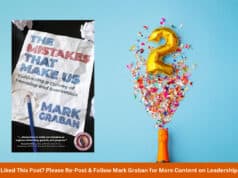Toyota's 1st-quarter profit declines 7%
The WSJ article commented:
“The news underscores the company's willingness to sacrifice short-term profit to maintain its torrid pace of growth. Still, it will disappoint Wall Street critics, who have called on Toyota to invest at a more measured pace and return more profit to shareholders.”
That's certainly in keeping with Principle #1 from the book The Toyota Way. I would imagine that Toyota has enough of a track record at this point to “do the right thing” for their business and not worry about investors and shareholders jumping off their bandwagon. I bet this is a challenge for companies starting the lean journey — not yet having enough credibility with “The Street” to hold to lean principles and focus on the long term.
Part of that long-term Toyota investment is aimed at growth, particularly in hybrids:
Toyota Motor Corp. is aiming to sell 600,000 hybrid vehicles a year in the U.S. by early in the next decade, a goal that implies a bigger surge in hybrid sales than some other car makers have been expecting.
Please scroll down (or click) to post a comment. Connect with me on LinkedIn.
Let’s work together to build a culture of continuous improvement and psychological safety. If you're a leader looking to create lasting change—not just projects—I help organizations:
- Engage people at all levels in sustainable improvement
- Shift from fear of mistakes to learning from them
- Apply Lean thinking in practical, people-centered ways
Interested in coaching or a keynote talk? Let’s start a conversation.










I thik that this is an excellent example of the hubris that Wall Street “analysts” have exhibited for many years and we have not questioned. If Toyota doesn’t take this suggestion seriously then the analysts will try to lead investors to other companies where they can get a quicker return on their money. They did that to Dreamworks because they missed the forecasted sales of DVD’s of Shrek 2 by less than 15%, but didn’t meet the “analysts’ expectations.” Dreamworks was guilty of making less money than they said they would. They made a lot of money, but not enough for Wall Street.
The key to me is that the analysts aren’t necessarily stakeholders, so why should they have a voice, but, because we all want to make more money, we pay attention to these “nattering nabobs of negativity.” (Spiro Agnew would be so proud of me)
I hope that Toyota spurns the advise and continues to show what excellence can be and, by doing so, sends a loud message to those who feel they should be in control.